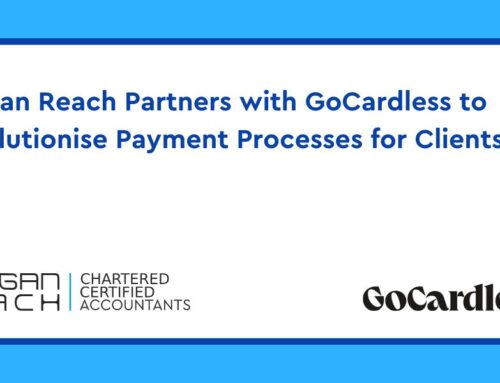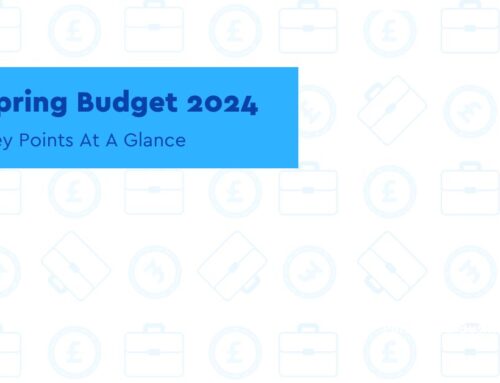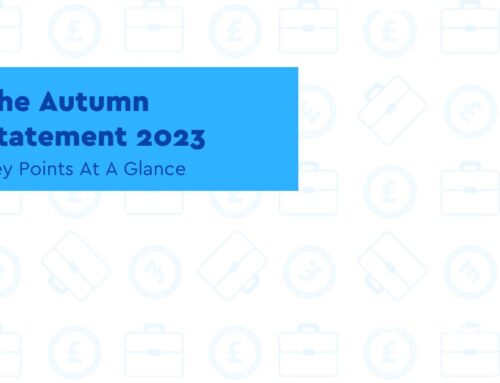News – Employers
Statutory Sick Pay Rebate Scheme reintroduced for small businesses
Key Points
- Employers can claim up to two weeks of SSP per employee, at £96.35 per week
- Employers will be able to file claims beginning mid-January 2022, and they will be able to do so retrospectively
The government has stated that the Statutory Sick Pay (SSP) Rebate Scheme will be reintroduced, allowing firms with fewer than 250 employees who had a PAYE payroll scheme open on or before February 28, 2020 to recover money from the government to pay statutory sick pay paid to employees affected by COVID-19.
Employers can claim up to two weeks of SSP per employee. SSP is currently £96.35 per week. Self-employed people are not eligible for SSP, although casual or agency workers are.
Employers will be able to file claims beginning mid-January 2022, and they will be able to do so retrospectively.
The reintroduction of the Statutory Sick Pay Rebate Scheme (SSPRS) was announced as part of a £1bn support package for businesses impacted by the Omicron variant of COVID-19.
Employers will be eligible for this support if they:
- are UK-based;
- employed fewer than 250 employees on November 30, 2021;
- had a PAYE scheme at November 30, 2021; and
- they have paid their employees’ COVID-related statutory sick pay (SSP).
The scheme will cover COVID-related sickness absences occurring from December 21, 2021. There are no details indicating when the scheme will end other than the government will keep the scheme under review. This follows the same pattern as the previous scheme that ran for periods up to September 30, 2021 when it was ended by legislation.
If an employer made a claim for an employee under the previous scheme, they will be able to make a fresh claim for a new COVID-related absence for the same employee of up to two weeks.
Employers should wait until mid-January 2022 to submit claims for coronavirus-related SSP from December 21, 2021. It is expected that claims will only be possible once the requisite secondary legislation has been laid.
As a reminder, employers must keep records of SSP that they have paid and want to claim back from HMRC. The following records supporting the claim must be kept for three years after the date the employer receives the payment:
- the dates the employee was off sick;
- which of those dates were qualifying days (i.e., the days that the employee would normally work);
- the reason they said they were off work due to COVID-19;
- the employee’s national insurance number.
Currently, employees can temporarily self-certify up to 28 days of absence and coronavirus-related SSP claims are not subject to the normal three-day waiting time.
News – Business
Additional support for businesses during Covid
Key Points
- This includes one-off grants of up to £6,000 per premises for businesses in the hospitality and leisure sectors
- Around 200,000 businesses will be eligible for business grants which will be administered by local authorities
The government is providing one-off grants of up to £6,000 per premises for businesses in the hospitality and leisure sectors in England.
Around 200,000 businesses will be eligible for business grants which will be administered by local authorities. The payments are equivalent to the monthly cash grants provided to hospitality businesses when they were fully closed earlier this year, despite businesses now being still able to trade.
Many businesses have more cash in the bank than they did at the start of the pandemic and net cash deposits for all hospitality businesses have risen by £7 billion (40%), while small and medium-sized businesses in the hospitality sector have seen their cash deposits rise by £2 billion (79%).
Fewer businesses have become insolvent, with insolvencies running 25% lower than pre-pandemic in hospitality, and vacancies are 50% above pre-pandemic levels.
Chancellor of the Exchequer, Rishi Sunak said:
“We recognise that the spread of the Omicron variant means businesses in the hospitality and leisure sectors are facing huge uncertainty, at a crucial time.”
“So we’re stepping in with £1 billion of support, including a new grant scheme, the reintroduction of the Statutory Sick Pay Rebate Scheme and further funding released through the Culture Recovery Fund.”
To support other businesses impacted by Omicron – such as those who supply the hospitality and leisure sectors – the government is also giving a more than £100 million boost to the Additional Restrictions Grant (ARG) fund for local authorities in England.
Local Authorities will have discretion to allocate this funding to businesses most in need. The ARG top up will be prioritised for those local authorities that have distributed the most of their existing allocation.
The government is also reintroducing the Statutory Sick Pay Rebate Scheme (SSPRS), which will help small and medium-sized employers – those with fewer than 250 employees – by reimbursing them for the cost of Statutory Sick Pay for Covid-related absences, for up to 2 weeks per employee. Firms are eligible for the scheme now and they will be able to make claims retrospectively from mid-January.
A further £30 million of funding will also be made available through the Culture Recovery Fund to support organisations such as theatres, orchestras and museums through the winter to March 2022.
Existing package of business support include:
- Business rates relief meaning that the majority of businesses in the hospitality and leisure sectors will see a 75% reduction in their business rates bill across the entire financial year and a new 50% capped business rates relief next financial year
- A 12.5% reduced rate of VAT for hospitality and tourism to support the cash flow and viability of around 150,000 businesses and protect over 2.4 million jobs, until the end of March
- The £1.5 billion Covid Additional Relief Fund for businesses that have not previously had business rates support
- Businesses will be protected from eviction if they are behind on rent on their premises, thanks to the moratorium in place until March 2022
- Access to finance for SMEs through the Recovery Loan Scheme to June
- Bounce Back Loan repayment flexibility, with borrowers having the option to take a 6 month repayment holiday, three 6 month interest only periods or extend their loan to 10 years, which almost halves the monthly payment
- Support for the aviation and travel sectors, including over £12 billion since the beginning of the pandemic, and the Airport and Ground Operations Support Scheme (AGOSS) until the end of March 2022
- HMRC stand ready to support any business impacted by the coronavirus pandemic through its Time to Pay arrangement, and the Chancellor has asked them to offer businesses in the hospitality and leisure sectors in particular the option of a short delay, and payment in instalments, on a case by case basis, as part of this
News – Investors
HMRC sends out tax warning letters to property sellers
Key Points
- The tax authority is reminding investors who buy, sell and rent out property of their tax obligations
- The important thing to remember is that there is a different rate of CGT on property profits than other assets
HMRC is reminding investors who buy, sell and rent out property of their tax obligations via ‘nudge letters’.
The aim of the letters is to remind people who might have made deductions in excess of the allowable proportion of 25 per cent of their residential finance costs when completing their self-assessment.
In particular, the letters will be sent to anyone who included a CGT disposal under the “other property, assets and gains” box in their voluntary disclosure. These disposals must be declared in the relevant part of the tax return and any residential property disposals requiring CGT payment must be paid by the financial year end.
Sellers who have made a financial gain from a sale that is not relieved by the Private Residence Relief must also declare this to HMRC.
Profits from the sale of these properties need to be included on the CGT pages within the “residential properties (and carried interest)” boxes on self-assessment tax returns. Remembering that CGT rates are higher on residential property disposals than “other properties, assets and gains”, it is common for sellers to owe an extra 8% due to confusion over these two boxes.
Property owners are reminded they need to pay CGT if you make a profit from the sale of a property that’s not your main home, for example if you buy-to-let properties, own a business premises, land or inherited property.
Different rules apply if you sell your home, live overseas or are a company registered abroad, so you need to check if you are eligible to pay CGT.
The important thing to remember is that there is a different rate of CGT on property profits than other assets. If you are a higher or additional rate taxpayer, you pay 28 per cent on profits from residential property as opposed to 20 per cent on profits from other chargeable assets.
If you’re a basic rate taxpayer, the CGT rate depends on the size of your profit, your income and whether your gain is from residential property or other assets. In this case, you need to calculate your total taxable income, minus your personal allowance and other tax reliefs.
If your taxable income is within the basic income tax band, you will need to pay 10 per cent CGT on your profits (or 18 per cent on residential property).
You do not pay CGT when you sell a property which has been your main home since you owned it. In order to qualify, you must not have rented out the property (having a lodger is allowed) or used your home exclusively for business (a home office is allowed).
Furthermore, the total size of the plot needs to be less than 5,000 square metres (just over an acre) and you can say that you did not buy the property simply to make a financial gain.
The period in question covers the 2019-20 tax year, but can apply to property transactions within the last four years. If you receive a letter, you only have a limited amount of time to check and amend your tax return using the digital disclosure service.
HMRC said it wants to help people better understand their CGT obligations and give them the opportunity to correct any errors they may have made on their 2019-20 self-assessment return by making an amendment to that return, before the deadline of 31 January 2022.
If you have made an error in your 2019-20 tax return, you will also be required to check the previous two years and inform HMRC.
HMRC urges landlords who believe they have under calculated their tax to make a voluntary disclosure through the Let Property Campaign. They should also seek professional advice to correct any irregularities.
News – HMRC
HMRC increases late payment interest rates
Key Points
- The increase in the base rate from 0.1% to 0.25% has triggered an increase in rates for late payments
- Late payment interest for other payments is increased from 2.6% to 2.75% from January 4, 2022
As interest rates are linked to the Bank of England base rate, the increase in the base rate from 0.1% to 0.25% on December 16, 2021 has triggered an increase in rates for late payments.
The rate applies to late payments of the main taxes and duties administered by HMRC. The rate is increased from 1.1% to 1.25% from December 27, 2021 for quarterly instalment payments. Late payment interest for other payments is increased from 2.6% to 2.75% from January 4, 2022. The rate of interest paid by HMRC on repayments remains unchanged at 0.5% as this rate is calculated as the higher of:
- 5%; and
- the Bank of England base rate minus one.
The Official rate of interest which is most commonly seen in relation to Employment-related loans also remains unchanged at 2%
From January 4, 2022
Income Tax, National Insurance contributions, Capital Gain Tax, Stamp Duty Land Tax, Stamp Duty and Stamp Duty Reserve Tax (from October 1, 1999)
| Late payment % | Repayment % |
| 2.75 | 0.5 |
Corporation Tax pay and file
| Late payment % | Repayment % |
| 2.75 | 0.5 |
Corporation Tax Self Assessment, from normal due date
| Late payment % | Repayment % |
| 2.75 | 0.5 |
Inheritance Tax, Capital Transfer Tax and Estate Duty
| Late payment % | Repayment % |
| 2.75 | 0.5 |
Our Latest Snippets
Weekly HMRC, Gov’t and tax updates
New post-Brexit customs rules come into force
New customs rules came into force on New Year’s Day for UK businesses trading with the EU as post-Brexit changes continue to be phased in.
From January 1, 2022, UK businesses will need to complete customs declarations and checks for EU products to pass over the border, except for goods from the island of Ireland.
UK exporters must also hold declarations from their own suppliers about the origin of their goods if they cannot issue a ‘statement of origin’ based on the production or manufacturing criteria for their work.
Pre-notification requirements of all sanitary and phytosanitary goods from the EU are now also needed, except for those imported from Ireland.
Inflation may hit 7 per cent this year, economists warn
Inflation could exceed 7 per cent this year to reach levels last seen in the 1990s, according to an annual survey of economists.
More than half of the 32 economists polled, who include former Bank of England policymakers, said they expect consumer prices to rise by at least one percentage point from current levels. Prices rose by 5.1 per cent in the year to the end of November, the highest rate in a decade.
Over a third of the economists expect inflation to peak between 6 and 6.5 per cent, while 15 per cent predict it will surpass 6.5 per cent. Two economists, including a former Bank rate-setter, said inflation would top 7 per cent.
In an attempt to tame the rise in prices, the Bank of England last month tightened monetary policy for the first time in three years by increasing the base rate from 0.10 per cent to 0.25 per cent.
Spring Statement 2022
The Chancellor of the Exchequer has commissioned the Office for Budget Responsibility (OBR) to produce an economic and fiscal forecast for Wednesday 23 March 2022. The Budget Responsibility and National Audit Act 2011 states that the OBR must produce a forecast on at least two occasions each financial year.
UK cuts grants for electric vehicles for second time in a year
The UK government has cut grants for electric vehicles for the second time in a year, provoking the anger of the car industry and prompting a call for car tax to be redesigned.
The grant available for electric cars will fall from £2,500 to £1,500 – half the sum available to buyers at the start of the year. The upper price limit for eligible car models will fall from £35,000 to £32,000, down from £50,000 in March.
The government is also cutting the grant on large and small vans from £6,000 to £5,000 and £3,000 to £2,500 respectively, it said in an announcement on Wednesday.
Electric cars – which produce zero carbon dioxide exhaust emissions – accounted for 19% of cars sold in the UK in November, as carmakers bring a series of new models to market and demand soars amid rocketing fuel prices.
Get In Touch
At Morgan Reach, we understand every business needs a little help now and again-especially when it comes to the financial side of things. Therefore, to help our clients and visitors we endeavour to cover as much of the business news as possible. If you are self-employed or run a business and need assistance and advice on how these news could make a difference to you or your business, feel free to get in touch with the experts at Morgan Reach. Our business growth experts at Morgan Reach will guide you through what support is available for you or your business as well as the latest news that may affect you.







